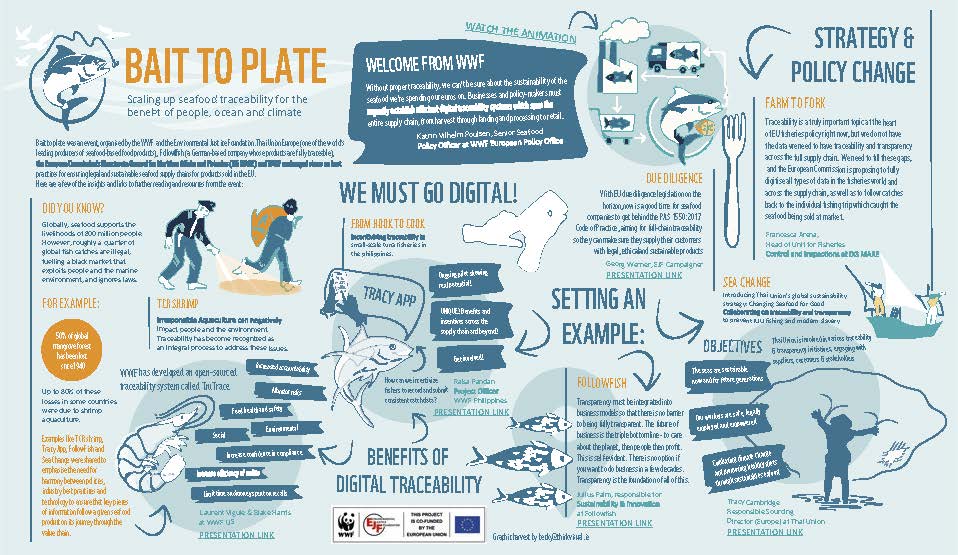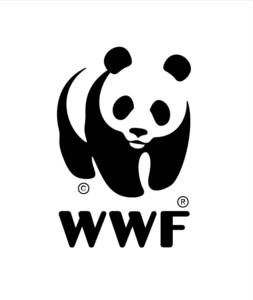On 24 of March, stakeholders from across international seafood supply chains discussed best practices and recommendations to secure traceability for seafood products that enter the European Union (EU).
At an event organised by the WWF and the Environmental Justice Foundation*, Thai Union Europe (one of the world’s leading producers of seafood-based food products), Followfish (a German-based company whose products are fully traceable), the European Commission’s Directorate General for Maritime Affairs and Fisheries (DG MARE) and WWF exchanged views on best practices for ensuring legal and sustainable seafood supply chains for products sold in the EU.
The European Union is the world’s largest seafood market, importing more than 60% of its consumed seafood. Much of this comes from developing countries, and some of it from countries known to have issues of illegal fishing and overfishing, as well as places which are already experiencing the adverse effects of a warming ocean. To prevent illegally-sourced seafood from reaching the EU and other markets, products from unsustainable sources must be prevented from being laundered and mixed into the supply chain.
Thai Union Europe presented their commitment to a fully transparent supply chain and showcased tools being used to achieve that goal, including their electronic monitoring system.
Francesca Arena, Head of Unit for Fisheries Control and Inspections at DG MARE said, “Traceability is a truly important topic at the heart of EU fisheries policy right now, but we do not have the data we need to have traceability and transparency across the full supply chain. We need to fill these gaps, and the European Commission is proposing to fully digitise all types of data in the fisheries world and across the supply chain, as well as to follow catches back to the individual fishing trip which caught the seafood being sold at market.”
Tracy Cambridge, Responsible Sourcing Director for Europe said, “Traceability is the backbone of our sustainability strategy at Thai Union – it allows us to map the supply chain right back to the boats. Traceability is not only about one actor in the supply chain, it is a thread across all of Thai Union’s initiatives to prevent IUU fishing and slavery.”
Julius Palm, responsible for Sustainability & Innovation at Followfish said, “Transparency must be integrated into business models so that there is no barrier to being fully transparent. The future of business is the triple bottom line – to care about the planet, then people then profit. This is self-evident. There is no other option if you want to be in business in a few decades. Transparency is the foundation of all of this.”
Katrin Vilhelm Poulsen, Senior Seafood Policy Officer at WWF European Policy Office said, “Without proper traceability, we can’t be sure about the sustainability of the seafood we’re spending our euros on. Businesses and policy-makers must urgently establish efficient digital traceability systems which span the entire supply chain, from harvest through landing and processing to retail. The future of our fisheries and the health of our seas depend on it.”
Globally, seafood supports the livelihoods of 800 million people. However, roughly a quarter of global fish catches are illegal, fuelling a black market that exploits people and the marine environment, and ignores laws.
The event has emphasised the need for harmony between policies, industry best practices and technology to ensure that key pieces of information follow a given seafood product on its journey through the value chain. This will empower businesses and authorities to distinguish legal from illegal products, and create transparency about the working conditions of the fishers and processors involved in bringing this seafood to market.
The EU is currently reviewing its rules on seafood traceability as part of the revision of its fisheries control system. Earlier this month, the European Parliament adopted its position, which calls for a mandatory digital and harmonised system to make seafood products in the EU market fully traceable. WWF and EJF now call upon the EU Member States to align with this call for a fully digital traceability system in their position, which is anticipated for 31 May.
ENDS
Notes to editors: *The Environmental Justice Foundation and WWF, co-funded by the European Union, are working to support consumers and the corporate sector in Europe to choose sustainable seafood as an active contribution to the Sustainable Development Goals, as well as climate change mitigation and adaptation. For more information, please visit www.fishforward.eu.
Find here the summary video, with main messages from Bait to Plate Event.
All links related with the presentations from this event can be found here
















